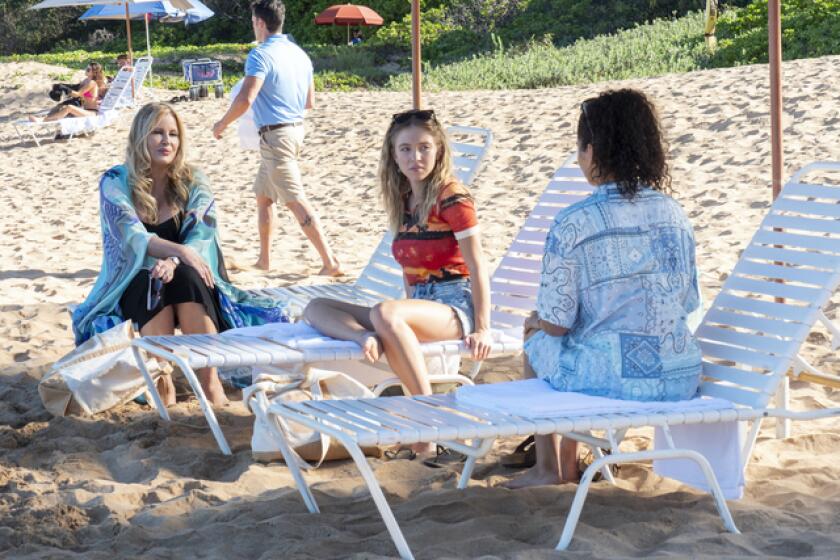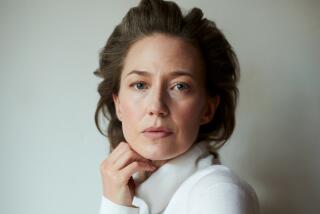4 not too deep questions for the ‘White Lotus’ cast
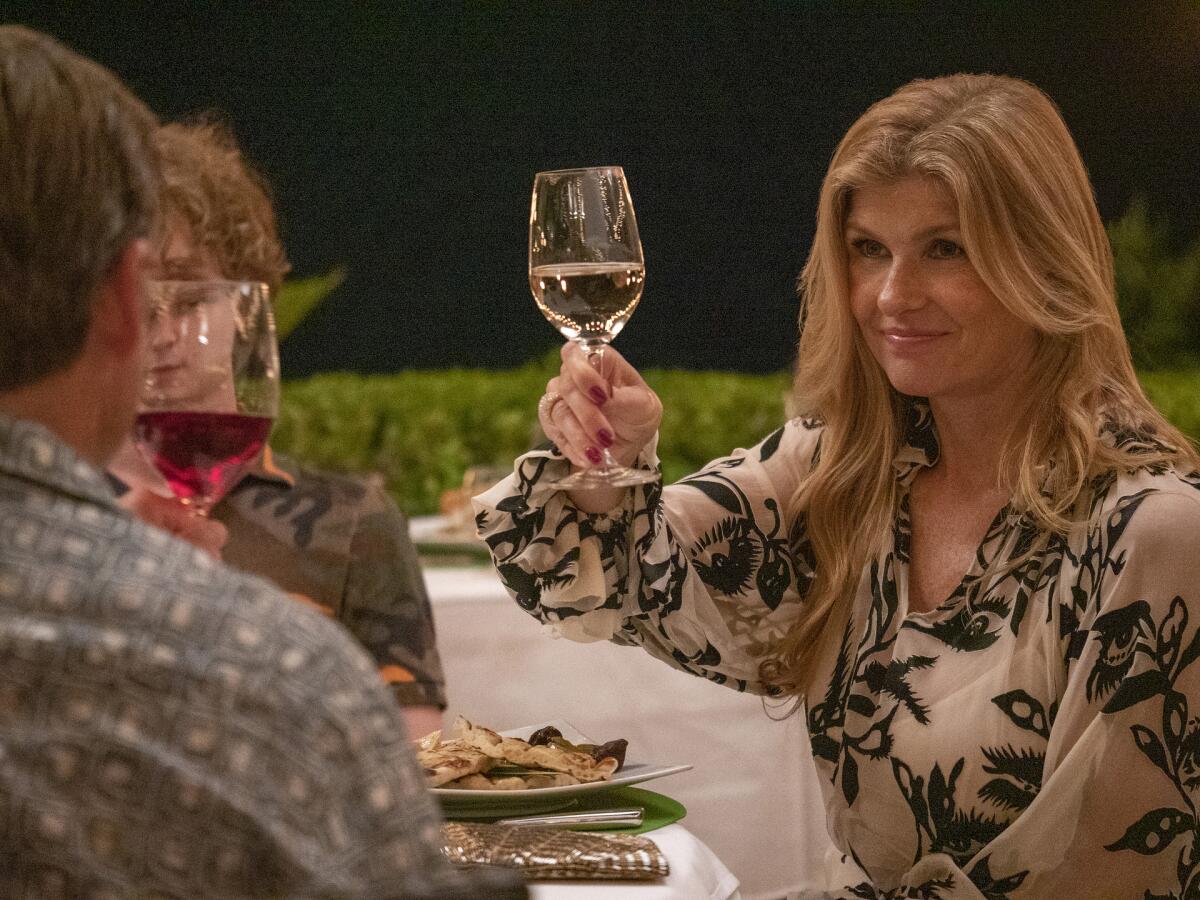
HBO’s “The White Lotus” featured not only one of the twistier plots to come out of TV this past season, but the series — a mix of social satire and whodunit based at a Hawaiian luxury resort — also featured one of the larger ensembles of the year. Yet among that large collective of characters, three stick out to us here at the Envelope as the most pivotal, complex and utterly fascinating: hotel manager Armond (Murray Bartlett); business tycoon Nicole (Connie Britton) and Tanya (Jennifer Coolidge), who’s grieving over the loss of her mother. So we decided to keep things simple and ask each the same questions — to try and get at the deeper truths embedded in the “Lotus.”
How did you feel about your character’s arc?
Murray Bartlett (via email): I was very excited by it. It was such a roller coaster and I loved being able to map that out. There’s nothing much held back, ultimately, and the chance to fully follow through on Armond’s emotions and impulses was very satisfying and fun.
Connie Britton (via phone): It was really satisfying in the bigger picture of the whole show. Mike [White, creator-director-writer] and I spent a good deal of time talking about the arc, really trying to make sure she had her own journey. I love Nicole because I really knew who she is: We as women think we need to serve everyone else, and make sure everyone else is OK, and Nicole was really suffering from that. For sure, I recognized parts of me in her.
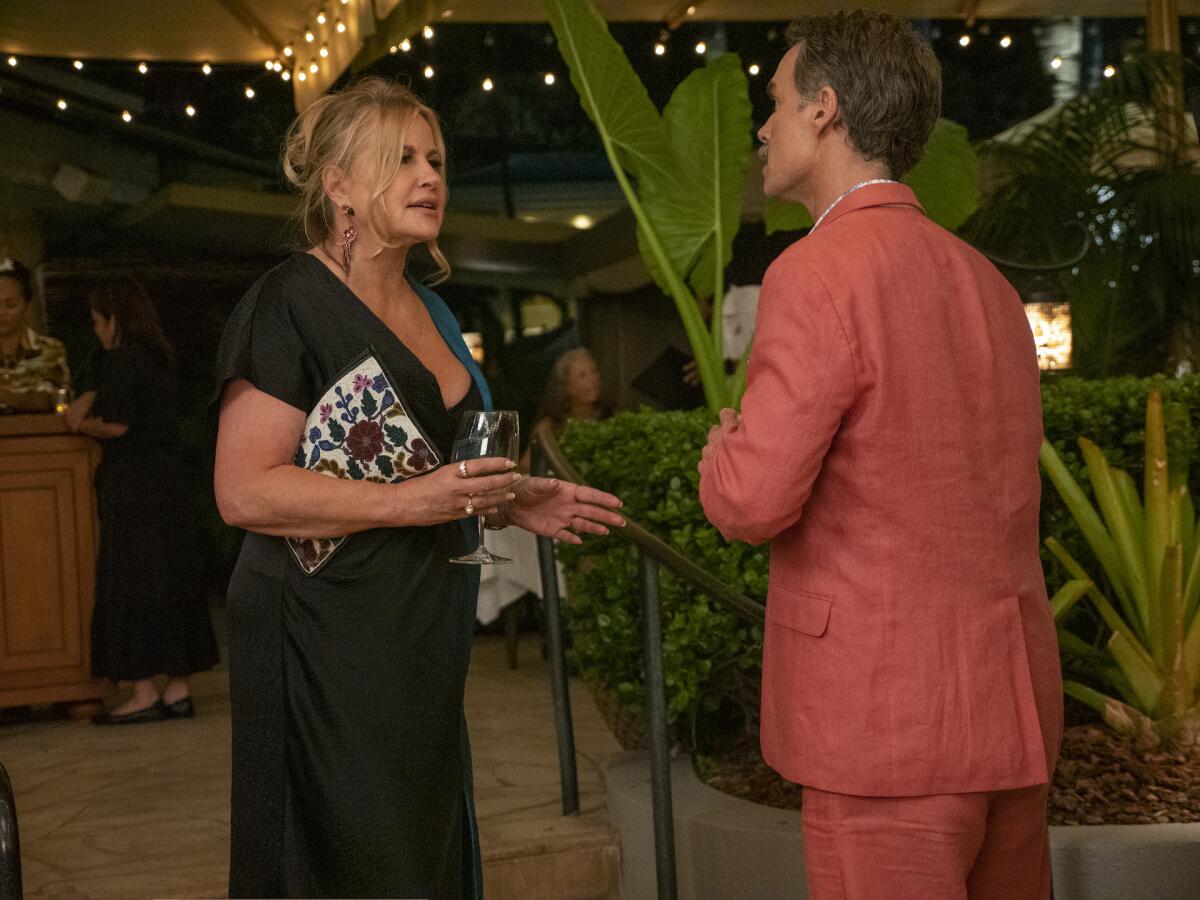
Jennifer Coolidge (via email): Tanya came from incredible wealth. She was severely neglected by her parents, who kept her sheltered from the real world and made it impossible for her to function as a normal adult. Her cruel mother was the only person Tanya ever really loved, and her death became the beginning of Tanya’s own personal emancipation.
Many aspects of the story deal directly and indirectly with white privilege and class differences. What was your take on those aspects?
Coolidge: Class differences are highlighted throughout the first season, and Mike White makes them funny, cringe-worthy and sometimes heartrending. In an exchange with her rich friend, Paula says to Olivia, “I guess it’s not stealing when you think that everything’s already yours.” That line struck me and emphasized how Olivia’s white, upper-middle-class upbringing has shaped her world view. And despite Olivia’s friendship with Paula and the books she’s always reading, she has no understanding of the struggles of Kai and others who work at the resort.
Writer-director Mike White’s dark satire of the guests at a luxury resort will be back for another installment, HBO announced Tuesday.
Britton: Therein lies the genius. There’s nothing I love more than a show that can really reflect the culture back to itself and capture exactly what our conversation is, then elevate it. Every character’s journey is screamingly recognizable, and that’s the fun and squirminess of it. We have to look at ourselves in real ways to elevate and contribute to the cultural conversation.
Bartlett: They are issues we urgently need to confront and get real about and wake up to. “White Lotus” allows us to simultaneously laugh and be horrified by these issues in a way that we can’t avoid. Hopefully, by telling these kinds of stories we are inspired to make significant changes to this toxic behavior and start treating each other better.
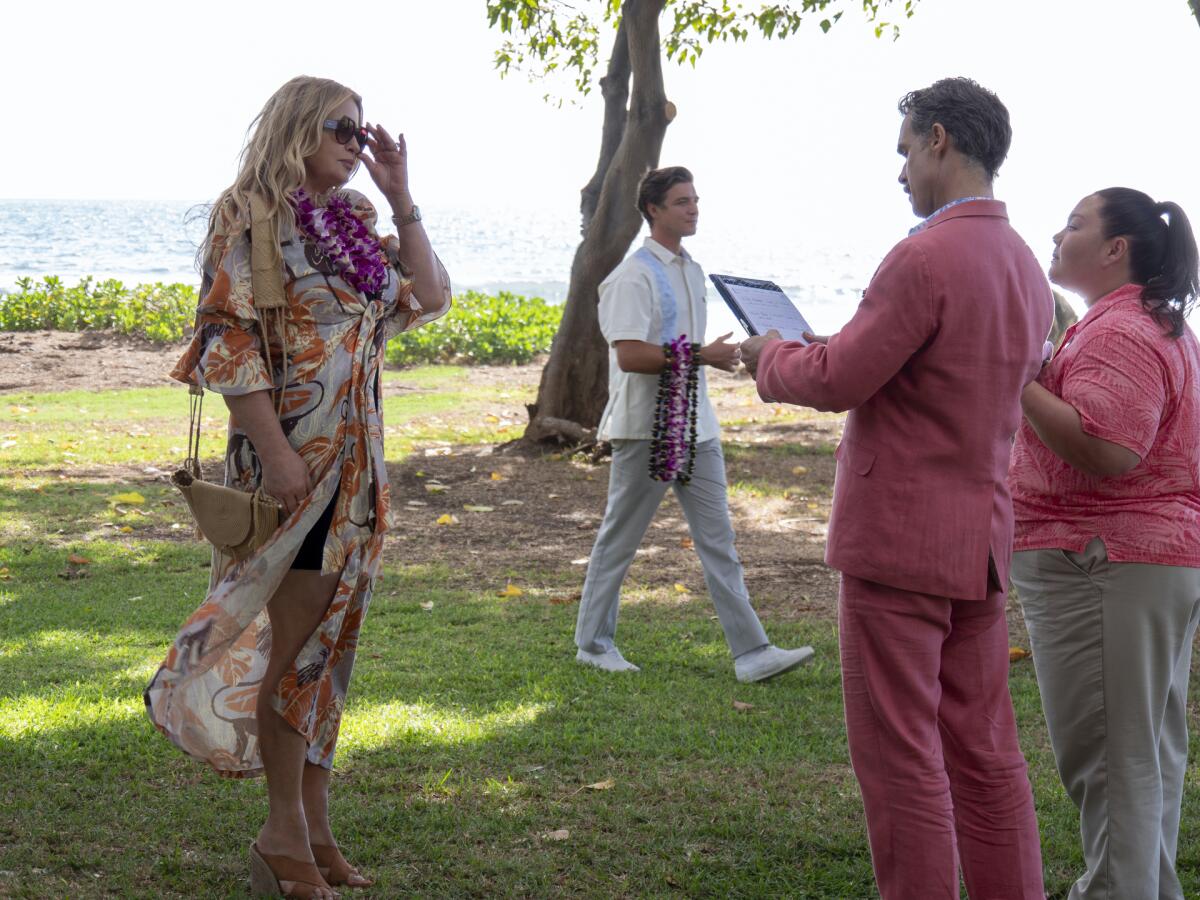
Which of the characters is most like you?
Coolidge: Mike White actually wrote the part of Tanya with me in mind — at least, that’s what he told me. I’m not rich like [her] and hopefully not as oblivious, but Mike is very observant and he used a lot of my idiosyncrasies and flaws that he finds amusing when he was writing her storyline.
Bartlett: All of these characters exist in all of us. It’s a confronting thought to realize that we all have the capacity to embody the worst aspects of our nature. But by recognizing that, we have the power to make different choices.
Britton: Nicole. I feel the closest to her … but ultimately it makes me have empathy for all of them. I can’t tell you how many women reached out to me [about Nicole]. I thought they might say, “This woman is so awful,” but they related to her. She’s just limited in her world view.
What do you imagine your character did after the last episode?
Bartlett: I’m not sure there is an alternate ending for Armond. I’d like to think he might have managed to find a small but immaculate guest house in the jungle and found love and peace of mind, but perhaps he’ll haunt the White Lotus forever.
Coolidge: Toward the end of the season, Tanya made some progress and was actually able to pull herself out of the self-induced hell she’s been living in. I imagine and hope she falls in love with her new romantic interest and may be able to find some happiness after all.
Britton: I don’t think she changes all that much. And that, to me, exemplifies how difficult it is to change cultural systems that impact who we are individually. She is holding on and that is this idea of white privilege and the historic white experience: Holding on so tightly to the things that make us believe what we believe about ourselves. And that is not easy to let go.
More to Read
From the Oscars to the Emmys.
Get the Envelope newsletter for exclusive awards season coverage, behind-the-scenes stories from the Envelope podcast and columnist Glenn Whipp’s must-read analysis.
You may occasionally receive promotional content from the Los Angeles Times.
